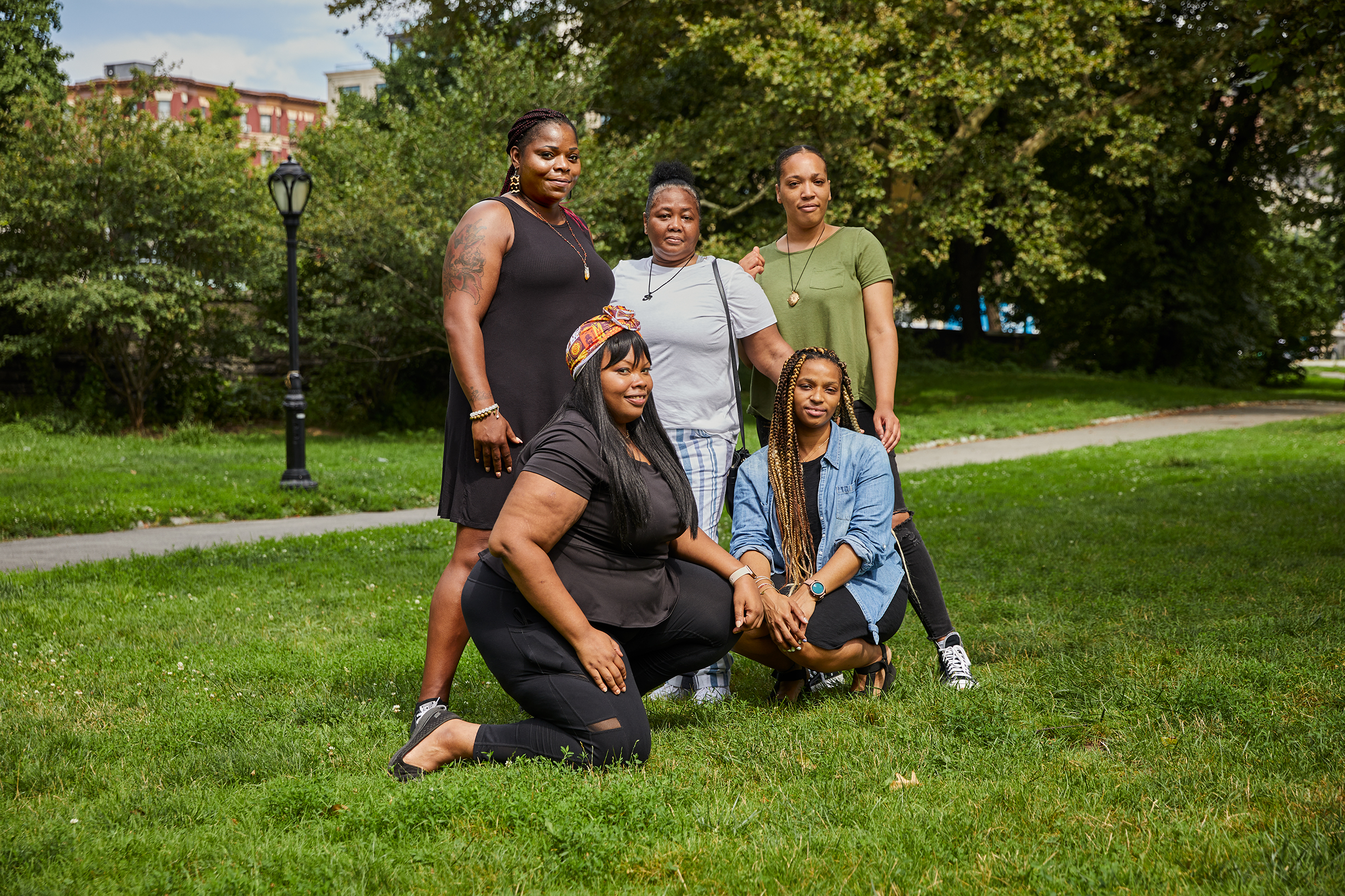
The Rise Participatory Action Research (PAR) project, completed in partnership with TakeRoot Justice, was led by our PAR Team of six mothers directly impacted by the family policing system in NYC: Halimah Washington, Naashia B., Shamara Kelly, Melissa Landrau, Yvonne Smith and Imani Worthy. PAR is a model in which people directly impacted by an issue are centered in the design, implementation and interpretation of the research.
Here, the Rise PAR Team reflects on their process together.
When the PAR Team began our work together in September 2020, one of our first priorities was building relationships, as not everyone in the group knew each other. Now we are sisters and love each other. We created a space where we were comfortable learning together—a space that was family oriented, beautiful and peaceful. We supported one another and gave each other space and grace. Everyone could be themselves and be accepted. We had someone to talk to. That environment makes you feel wanted and helps you heal. By coming together on equal ground as impacted mothers, we contradicted stereotypes that villainize Black women and we showed what is possible on a grander scale. Together, our PAR Team did outreach, became researchers and facilitated community conversation focus groups—all during a global pandemic.
Building a Foundation in Community
Our partners at TakeRoot Justice provided guidance throughout the research process. We built a foundation for our research through storytelling processes. We shared our experiences with the family policing system and why we are passionate about this work, which helped us to clarify the purpose of our research and informed the process from beginning to end.
With support from TakeRoot, we developed our research tools and learned how to conduct focus groups and surveys. In developing surveys and planning community conversations, it was important to us to use language that was sincere and relatable. We wanted to ask questions in a way that wasn’t harmful and didn’t blame people for their experiences.
We also learned by reading articles, watching videos, writing, engaging in discussions and asking questions. We took part in restorative justice circle keeper training facilitated by Ashley Ellis, co-founder of the B.R.E.A.T.H.E. Collective. We used circle processes in our meetings and in community conversations throughout the PAR project. Now, circle practice is a resource we can bring to our families and communities.
Starting with Ourselves
We valued transparency, honesty and communication in our work together. As the community coordinator leading the project, Halimah created a safe space where we could name our feelings. If something came up, we discussed it in circle, in community, even if it was not on the agenda. We also had laughs and talked about the positives—our accomplishments, our children’s graduation days. We called each other and texted to check in, practiced before community conversations, made sure everyone had their script and covered for each other as needed. We did not see our bumps in the road in this work as failures and did not beat ourselves up in a world where we are beaten up.
We were intentional in that, before we held conversations with the community, we had the conversations and did the surveys ourselves. It was a lot for us. We were asking difficult questions about people’s lives, and we thought about what their emotional experience would be. We included prompts to take breaths in between the survey questions, so that people would take breaks as they responded. We started each community conversation with community agreements to set the tone and also used breathing techniques together.
Facing Shame and Creating Connections
At times people said, “I’m not answering that. I can’t go there.” We could say, “We’re not here to delve into your privacy. We feel the way you feel. We are angry, too. These conversations are going to help us develop a report. There is a world that pretends not to know what we go through.” It opened up people’s comfort zone to know that we are impacted parents, that we are in the same shoes.
They would put their cape on and start talking. Sometimes they said, “This is my first time speaking about my case, because I felt ashamed.” We didn’t force people to share, but it can be good to get it out. People wanted to come again, to keep talking and to get involved.
Turning Poison into Medicine—and Advocacy
Throughout the course of the project, we facilitated 10 community conversation focus groups, engaging nearly 50 people impacted by the family policing system, and conducted nearly 60 surveys with impacted parents. After we completed our research, TakeRoot and Rise worked together to explore our research findings and develop recommendations and our report.
It was a privilege to hear from parents about what they have been through and to build community with people who understood our mission. It was also a learning experience, hearing from parents who are tired of not being heard, tired of not getting real support. We needed to hear their experiences so that we could amplify what parents want and move it forward—and educate the masses about the harm the system is causing to Black and brown communities.
It was amazing to realize we aren’t alone, that other people are in similar situations, and to develop a vision together. Our stories are different, but we are suffering together. Our experiences unite us and we are turning poison into medicine. We have already planted the seeds. The next step is up to us, parents and families that live in communities affected by the family policing system, to create the change we want to see!
>> Explore TakeRoot’s Research for Organizing Toolkit to learn more about participatory action research.
